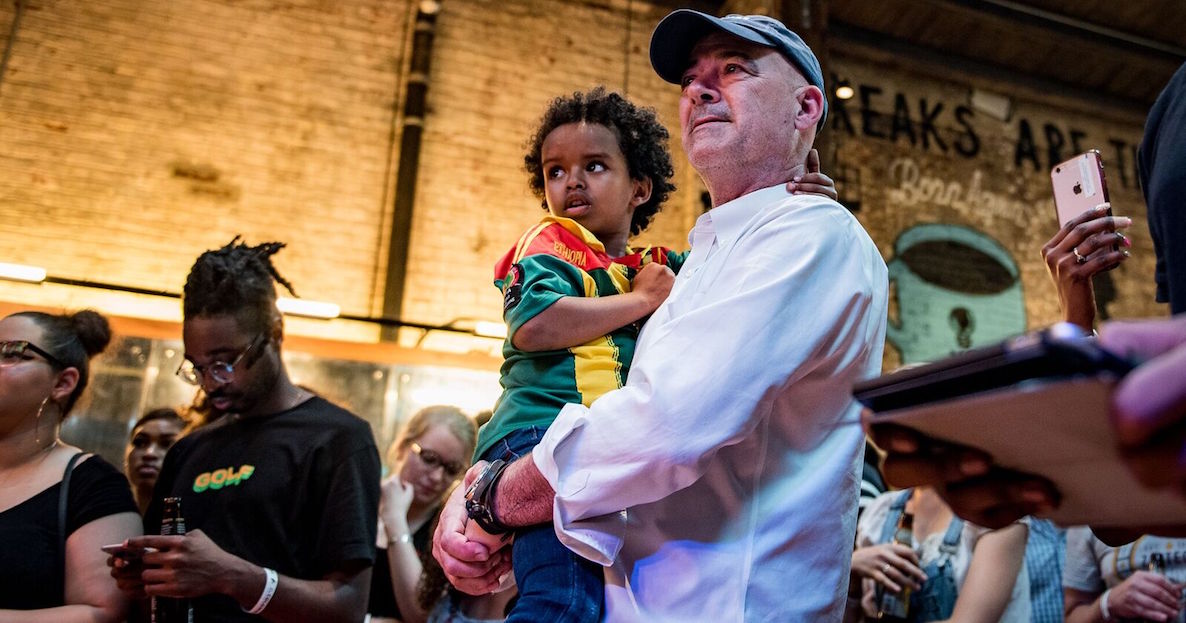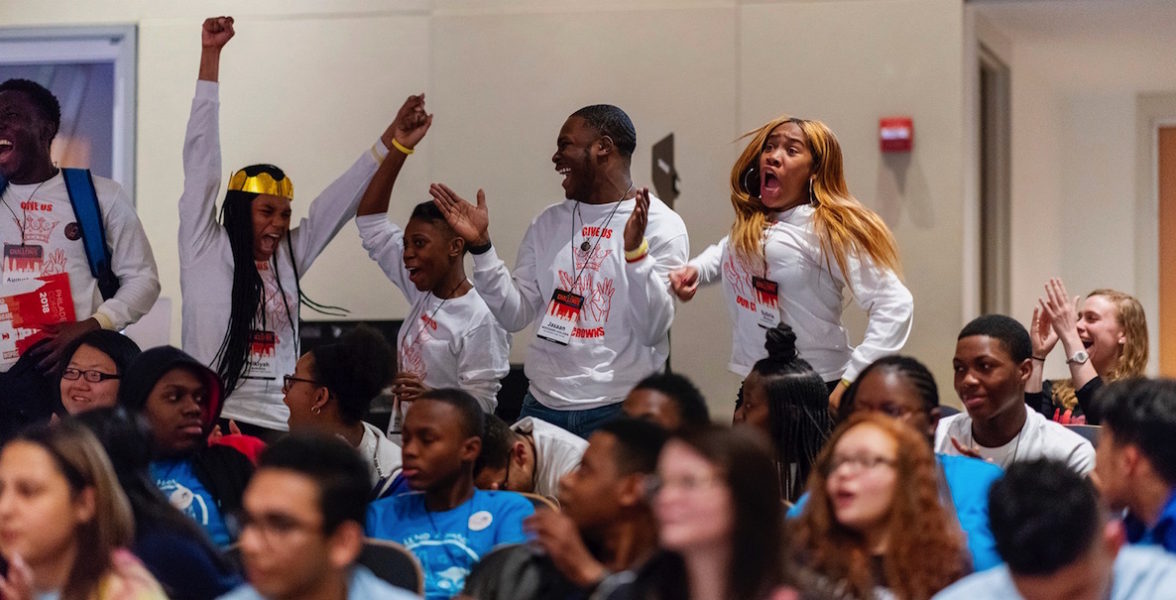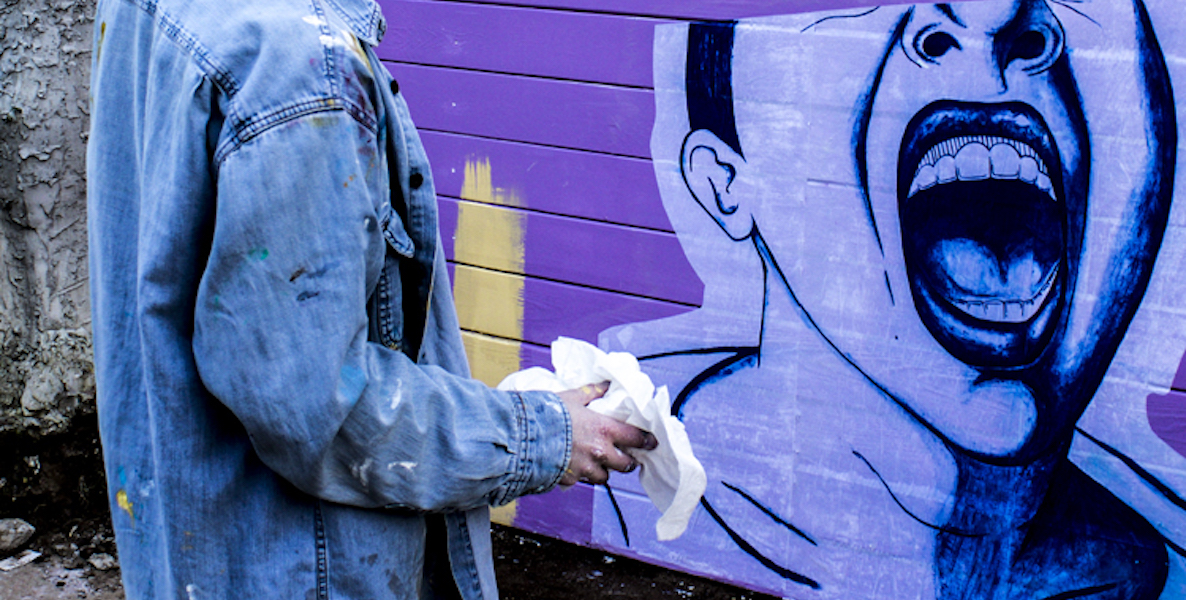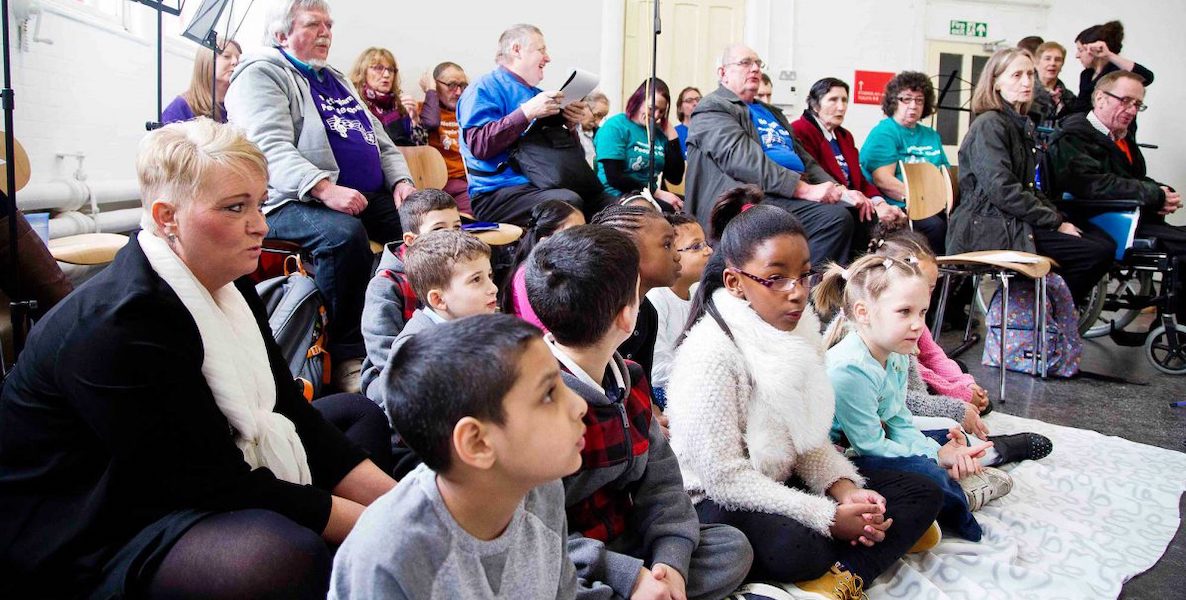Avoid alcohol and coffee—they’ll dry up your mouth; try a bit of rosewater with glycerin instead. If you’re looking to reach a sharper note, tighten the sides of your lips slightly. And never, ever, smooch before a performance.
These are some of the tips professional whistlers of the world abide by and are just a portion of a long list local Philly whistlers have been reviewing for months in preparation for this Saturday, when The Whistling Orchestra of Philadelphia will take to the stage in Old City Philadelphia’s Christ Church Neighborhood House for the first time, to perform an original composition written specifically for whistlers.
![]()
Commissioned by Temple Contemporary at the Tyler School of Art and supported through the Velocity Fund, the orchestra is made up of 31 Philly-based performers—tenors and sopranos, factory workers and business brokers—varying in age and whistle proficiency, who all answered a simple call last spring: “Do you know how to whistle?”
“People just started coming out of the woodwork,” says Aislinn Pentecost-Farren, a local artist and project manager for the orchestra. “They’d say things like ‘my buddies always told me I was an amazing whistler’ or ‘my mom taught me how to whistle, I’d never thought I’d get to share it with anyone else,’ really showing all of these deep connections people have to whistling.”
The art of whistling goes back long before Bender’s rendition of the “Bridge on the River Kwai” in The Breakfast Club.
“Whistling is this unrecognized musical form and isn’t given the same kind of status as other instruments or singing,” Penetecost-Farren says. “People who know how to whistle, even if they’re incredible whistlers, there’s no venue for them to perform their art.” So when people heard about the project, Penetecost-Farren says, the enthusiasm was clear.
Emma Smith, U.K. based artist and composer, would receive a whistling sample from an interested participant and then place them in the orchestra, similar to how an orchestra with instruments would be arranged. While the Philly whistlers first met this past Tuesday to rehearse, they were given music sheets and whistling songs to practice at home.
The art of whistling dates back long before Bender’s rendition of the “Bridge on the River Kwai” in The Breakfast Club. It stakes its roots during the Industrial Revolution, when factory workers used it as a means to communicate and rally for unionized labor.
Whistling was used as an organizing tool in the labor movement, with different whistles signifying different things—it was a way for workers to protect themselves and their jobs from the higher-ups while fighting for their rights. Smith originally composed this Saturday’s project for an ensemble in Nottingham, England, an area that faced a similar post-industrial decline as Philadelphia.
![]()
“Whistling was something that all of the workers did and what they used as an organizing tool, so much so that whistling was banned in factories,” Pentecost-Farren says. “I think part of Smith’s inspiration for doing this work is bringing a little bit of that history to light.”
Saturday’s performance in Old City will host the 31 orchestra members and one champion whistler, Mimi Drummond, who has been whistling since the 1980s and holds nine international melodic whistling titles. Along with Drummond, individuals like Caroline Winschel, a choir singer and committee person in the 27th Ward, and Sandra Dowling, a U.S. Army veteran who uses whistling to calm her nerves, will all come together on the stage.
“The main goal is for these whistlers to have this experience and see each other in themselves,” Pentecost-Farren says. “For people to come away with this sense of the power of everyone’s innate talent for being an artist or being creative in whatever way they find that in their life.”
Saturday, March 16, 7 pm-8:30 pm, Free with registration, Christ Church Neighborhood House, 20 North American St.
Photo via Emma Smith






